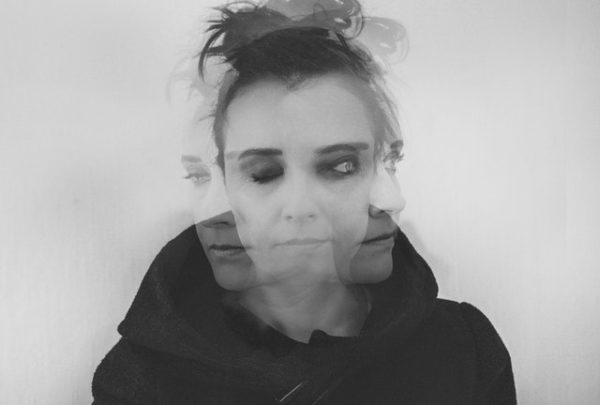The COVID-19 crisis brought new realities of restricted movements, unemployment, inadequate access to services and other support systems, and a lot more. These created new hurdles for people suffering from mental illness and substance use disorders, with 4 in 10 adults in the US reported having symptoms of anxiety or depression (a significant jump from 1 in 10 adults in 2019). It was also reported that 12% of adults experienced increased alcohol consumption or substance use and the same number was reported for those who experienced worsening chronic conditions. This highlights the significance of dual diagnosis treatment centers, as well as other mental health services to address the growing demand for support systems and health services in the midst of the pandemic.
What is dual diagnosis?
Dual diagnosis is a term that refers to people dealing with co-occurring disorders. Often, this person has a a mental illness while having substance use/abuse simultaneously. Apart from the specific symptoms of the disorders that affect the daily functioning of an individual, co-occurring disorders interact with each other, too. These disorders are likely to worsen their respective prognoses as they both get in the way of their treatments, if not addressed at the same time.

How common is a dual diagnosis? They are actually more common than what most of us believe. Here are some quick facts about dual diagnosis according to multiple research:
- Around 50% of people experiencing severe mental illness are also battling with substance use disorder.
- More than 30% of people with substance use disorder have at least one serious mental illness (37% for alcohol addiction and 53% for drug addiction).
- The substance most commonly used and abused is alcohol (29% of people diagnosed with mental illness reported abusing alcohol or drugs).
- Ages 18 to 44 in males are at the greatest risk.
- Young people with serious behavioral problems are 7 times more likely to have used or abused alcohol or a drug in the past month. Adolescents with substance use disorders have high rates of co-occurring mental illness.
Mental health and substance abuse link
Prolonged substance use such as marijuana and methamphetamine can cause psychological reactions. On the other hand, alcohol use and abuse can worsen symptoms of depression and anxiety. Although mental illness and substance use do not directly cause each other, there is indeed a strong link between the two.
One point to consider is that substance abuse is often utilized to self-medicate symptoms of mental illness. Usually, people abuse alcohol and drugs to cope with difficult emotions; they momentarily improve moods, and ease the symptoms of undiagnosed mental health issues. However, prolonged self-medication involving substances worsens symptoms that were initially ‘eased’.
Substance abuse increases the risk for mental illness. Mental health problems are complex and caused by a lot of factors. Therefore it is challenging to point to alcohol and drug abuse as direct culprits for such cases. Nevertheless, substance use disorder can push someone at risk over the edge. An example would be people who abuse opioid pain relievers; they have a greater risk for depression and heavy users of cannabis are more likely to develop schizophrenia.
As mentioned, substance abuse worsens the symptoms of a mental health disorder. Apart from drastically aggravating the symptoms, alcohol and drug use can even trigger new ones. Alcohol and drugs can also negatively affect how medications work for depression and anxiety (i.e. mood stabilizers, antidepressants, anxiety meds, etc).
Most often, substance use disorder or addiction often co-occurs with anxiety and depression. Other mental illnesses common in dual diagnosis with addiction are Schizophrenia, Borderline Personality Disorder, and Post Traumatic Stress Disorder or PTSD.*
*C. Alfred Alford’s book Trauma, Culture, and PTSD provides a fresh perspective on how trauma is tied to societal norms, culture, and politics.
Signs of dual diagnosis
It is quite a challenge to recognize a dual diagnosis case. Often, the signs and symptoms of the co-occurring disorders depend on the particular mental illness and the kind of substance being abused by the patient. However, it is important that the presence of the two co-occurring disorders is established. This helps them proceed with a proper strategy to address the problem. Getting professional help from dual diagnosis treatment centers will be helpful in getting a careful assessment. The collaboration between the dual diagnosis rehab professionals and family members is integral in creating a good strategy for a patient’s full recovery.
What are the treatment types available in dual diagnosis treatment centers?
Working out a treatment plan is in order right after identifying the co-occurring disorders. There are a lot of good programs out there that address mental health problems. However, not all of them can treat substance use disorders or addictions. This also goes for programs for alcohol and drug abuse; most of them lack the right treatment for people with mental illness and struggling with substance addiction. This leads to patients not getting treatment by single-diagnosis programs. And they tend to bounce from one treatment plan to another.

The best treatment strategy for dual diagnosis is an integrated approach. This means that the treatment addresses both the substance use disorder and the mental health problem at the same time. An integrated strategy may include:
- Medications
- Psychotherapy
- Counseling
- Detoxification
- Behavioral therapy
- Support groups
Dual diagnosis treatment centers integrate treatment and support for each condition. This assists people to recover from two disorders in one setting at the same time, highlighting the importance of knowing specialized addiction treatment centers near your area.
Best treatments for dual diagnosis in California

Seeking help from the best dual diagnosis treatment centers is a time and cost-efficient way to treat co-occurring disorders. If you are typing in the search box “dual diagnosis treatment centers near me” looking for a recovery center in California, then you are in the right place.
Roots Through Recovery is a dual diagnosis treatment center located in Long Beach, California. Here at Roots, we honor that everybody is different. We veer away from a cookie-cutter approach of creating a treatment plan for our patients; instead, we approach your recovery based on your specific needs, situation, and goals.
Why choose Roots? Apart from offering dual diagnosis treatment in California, we offer a wide selection of programs for those coping with addiction and mental health issues. We embrace the culture of wellness that is at the heart of Long Beach, a city that offers a uniquely diverse community for healing the mind, body, and spirit.
Come visit us at 3939 Atlantic Ave, Suite 102 Long Beach, CA 90807 or call (866) 766-8776 for immediate assistance.




